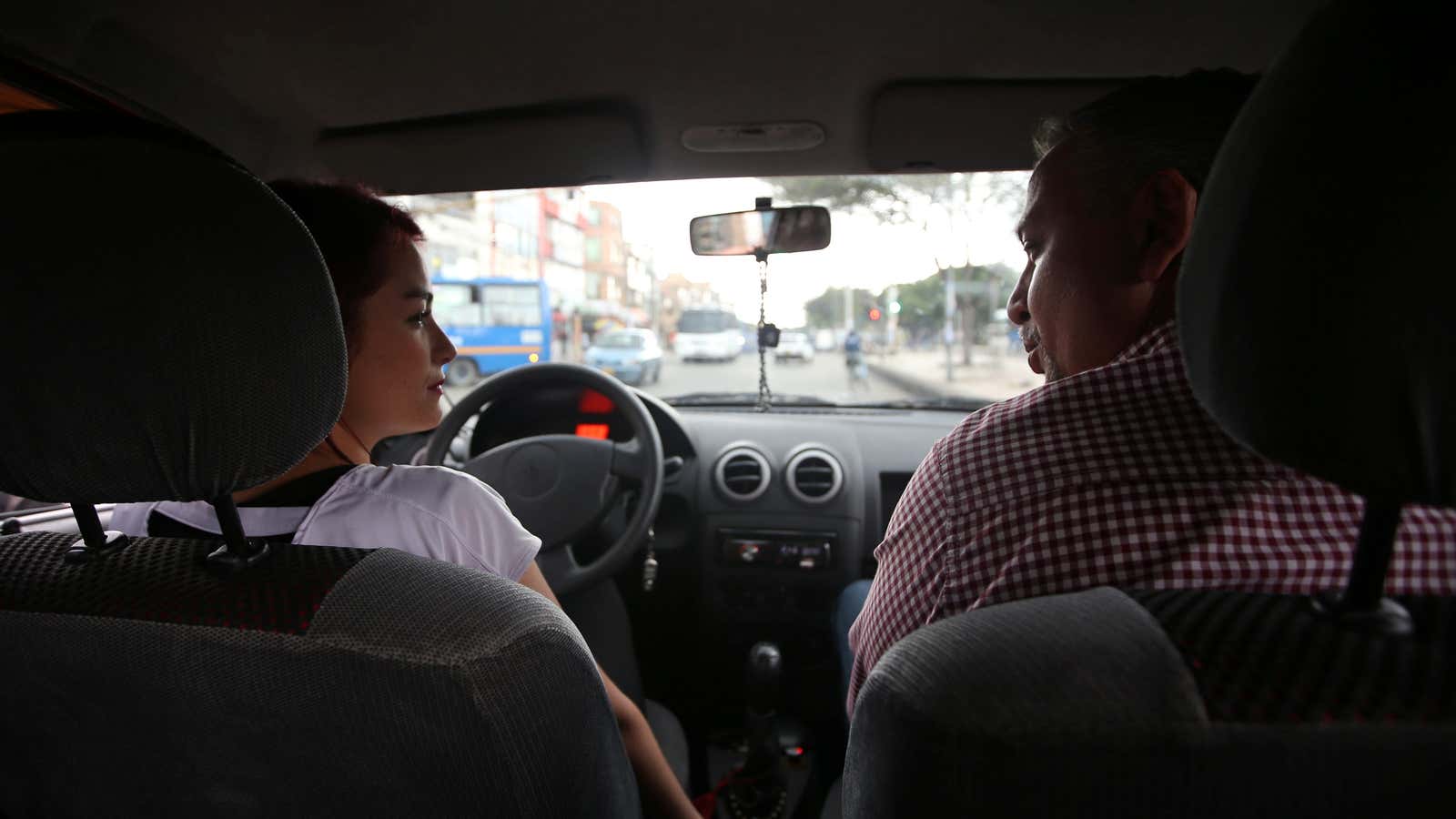Uber is pausing its shared Uber Pool service in the US and Canada in an effort to slow the spread of coronavirus, Reuters reported.
Uber Pool offers cheaper prices in exchange for riders sharing their trip with other passengers headed the same way. Uber has historically marketed the service as better for the environment and a way to get more people in fewer cars.
Andrew Macdonald, Uber’s senior vice president of the global rides business, told Reuters the company’s goal is “to help flatten the curve on community spread in the cities we serve.” Uber didn’t immediately respond to a Quartz request for comment.
The Independent Drivers Guild, a New York-based driver advocacy group, called yesterday for Uber to suspend Pool rides as the coronavirus outbreak intensified in the US, with the largest single-day count of coronavirus-related deaths to date. “Packing five strangers in a pooled ride is a bad idea right now,” guild executive director Brendan Sexton said in a statement.
For now, regular Uber rides and the Uber Eats food delivery service remain available. Uber told Reuters it is working with local authorities on how to handle those services. Uber has yet to announce similar restrictions outside North America, though its shared rides service is also less common in other parts of the world, largely thanks to stricter regulations. In London, for instance, Pool was still a booking option in Uber’s app as of publishing time.
Uber has urged employees in the US and Europe to work from home when possible.
Via, another ride-hail company that operates a primarily shared rides service in a few US cities, said in an email to New York City customers on Monday (March 16) that it is “reducing the total number of people in each shared ride.”
Lyft couldn’t immediately be reached for comment on its plans for shared rides.
Ride-hail companies are in a tricky spot with the novel coronavirus. Drivers for these companies are independent contractors, meaning they aren’t employed directly by the companies and don’t receive employer-sponsored benefits like health care and paid time off from them. That has left many drivers feeling exposed to a health crisis where they are arguably on the front lines, as people avoid public transit and order food delivered at home.
Hiring workers as contractors also prohibits companies from exercising too much control over their workers. That means companies like Uber and Lyft can suggest safety measures for drivers to take to minimize the spread of coronavirus, but they would be hard pressed to require them to follow new rules and protocols. Lyft, for instance, currently recommends drivers “drive with the windows open when possible” and “regularly disinfect surfaces,” steps it says are in line with guidance (pdf) from the US Centers for Disease Control and Prevention.
In China, local ride-hail giant Didi Chuxing initially installed protective plastic sheets in cars between driver and passenger seats in an effort to prevent transmission of Covid-19, the disease caused by the novel coronavirus.
